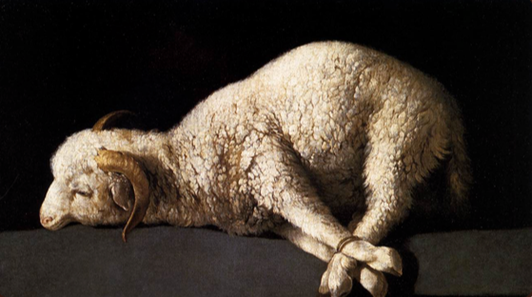|
It is not by chance that our Lord’s triumphal entry into Jerusalem is on this day. The events, as they unfold, are not by happenstance. The entire week is a well-orchestrated, choreographed enterprise enveloped in symbolism foretold by the prophets of old. The week begins with a colt. Jesus gives instruction to his disciples to enter into the city and retrieve a donkey’s foal, for it is to be his transportation into Jerusalem. This colt, Jesus knew where to find it, and what is to be said to its master. It is not because Jesus could not find a more suitable mode of travel. He can choose any animal He desires, yet the Savior of the world chooses this simple, humble beast. The donkey, you see, is to prove a point, for it is as the prophet Zechariah wrote, “Rejoice greatly, O daughter of Zion! Shout, O daughter of Jerusalem! Behold, your King is coming to you; He is just and having salvation, Lowly and riding on a donkey, A colt, the foal of a donkey.” Zechariah 9:9 Jesus comes to the city upon the back of this beast of burden in order to fulfill this prophecy. Not only that, but as he enters, the people recognize the fulfillment of scripture, and shout, even as the prophet spoke. This action by Jesus is understood to be His proclamation, that He is indeed, God’s promised Messiah. Though the symbolism is not yet complete, for it is even known from which direction the Messiah would appear. “And in that day His feet will stand on the Mount of Olives, Which faces Jerusalem on the east.” Zechariah 14:4 It is from the Mount of Olives He will come, riding upon a donkey’s colt. Jesus now arrives, having come just then, from this very garden. The actions of Jesus are anything but subtle, and they are not lost to the people. So they cry out as they understand what this entry into Jerusalem means: “The King is coming, and He is here!” “Hosanna! ‘Blessed is He who comes in the name of the Lord!” Mark 11:9 Even the shouts of the people is foretold, their very words proclaimed, recorded in the psalms: “Blessed is he who comes in the name of the Lord!” (Psalm 188:26) Yet, all is not well, for the people are looking for a military deliverer, a king that would lead them in battle against the oppressive regime of the Roman Empire. As they wave their palm branches, the people shout, “Hosanna.” The branches represent the national symbol, waving their flag in support of the nation of Israel. The word Hosanna, not a cry of peace or religious fervor, but a symbol of rebellion as it signifies a call for deliverance from oppression. This joyous assembly is not singing praises to God, but is crying out for insurrection against an oppressive dictatorship. It is a battle cry. However, Jesus has not come as a military deliverer, an earthly king to lead His people to war. He comes to reconcile His people to the Father. It is for this reason that Jesus chose this particular day to enter into the city of Jerusalem. As He rides upon the colt, He enters the city with the lambs. Four days, it is, before the Passover, and that day is Lamb Selection Day. This is the day the Passover lamb is to be chosen, the innocent sacrifice that will take the place of the first born. It is the tenth day of the month; on the fourteenth day, the Passover lamb is to be killed. Enter Jesus, the perfect propitiation, to be chosen as their spotless lamb. Not a political liberator, but the King of all, whose kingdom is established by love and sacrifice. Four days later, Jesus is with His disciples in the Upper Room, celebrating the Passover. Only this Passover is not like the others. Here Jesus puts Himself as the Lamb, His body and blood as the sacrifice. Then, the next morning, He is alone, upon the cross, His blood shed for the many that are now nowhere to be found. And as the shofar is sounded, at the ninth hour, or three o’clock in the afternoon, the Passover lamb is slain, the lamb without blemish, given up for the people. It is at this very moment, upon a lone hill called Golgotha, that Jesus says, “It is finished.” Jesus is the perfect Lamb who takes away the sins of the world. Because of this single act of selflessness, all who follow Him are set free from the bondage of sin, liberated from the oppressive regime of the Enemy. “Hosanna in the Highest!” Susan Van Volkenburgh
1 Comment
|
Susan
|



 RSS Feed
RSS Feed